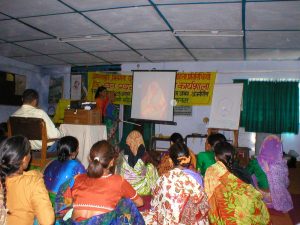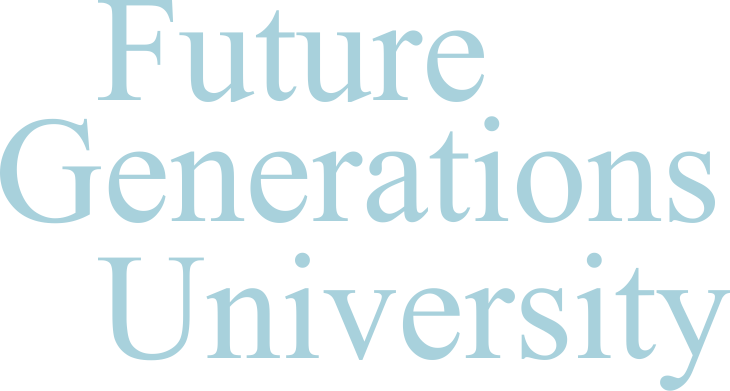**Photos throughout the post are from Future Generations-affiliated CHW programs around India.

It is possible to provide life saving and life sustaining healthcare at an extremely low cost using well-trained non-professional community health workers.
When these community health workers interact regularly with individuals and families they build essential trust and expand opportunity to access health information and basic healthcare.
They can serve as a critical bridge between professional health care workers such as doctors and nurses – of which there are typically substantial shortages in the developing world – and a population that is often rural, impoverished, and lacking access to education and therefore typically at great health disadvantage because of many structural barriers to accessing healthcare.
In the regions and countries where community health workers have played a major role in healthcare provision we see substantial reductions in morbidity and mortality from a range of diseases, better public knowledge of health, safety, and sanitation, and often substantial behavioral change that reflects this knowledge and in turn, produces improved healthcare outcomes.

Still, despite this record of success and common knowledge, community health workers are underutilized in global healthcare provision in the developing world.
Considering the successes of community health workers helps to illustrate the power and potential of community health workers in advancing improvements in health outcomes.

In Narangwal, India, healthcare for pneumonia was expanded substantially by training community
health workers to correctly diagnose pneumonia by something as simple as assessing the quality and frequency of the respirations of babies and children.
Successful diagnosis no longer required doctors with stethoscopes because community health workers could accurately make diagnoses just as effectively even without advanced medical training.
Community health workers were also trained in how to correctly administer penicillin injections. This brought down rates of pneumonia mortality by 45% according to Daniel Taylor.
Complicated cases requiring more advanced care were referred to a health clinic for further medical care beyond what the community health workers could provide.
But for a very large sector of the population the assessment and basic care community heath workers could provide was sufficient.
Community health workers have been integral to successful efforts to expand family planning and lower rates of diarrhea amongst children – which can be lethal.
The provision of information on how to create homemade oral rehydration therapy from salt and glucose massively reduced child deaths from diarrhea in India and Bangladesh.
In Tibet, roasted barley flour with salt has been especially effective and in other countries as well clinical studies have shown that the use of a cereal based flour mixed with salt has even greater efficacy than the traditional combination of salt and sugar.
The trust that mothers and community health workers develop creates a bond that is key to health outcomes improvement.
This bond is fundamentally relational.

It emerges from community health workers having basic but valuable and life-changing health information and resources that mothers and families respond to with interest and openness when they quickly recognize how it advances their family’s health.
Moreover, it enables behavior changes that can be as fundamental to human health as the direct provision of medication.
Improvements in nutrition that follow from the education community health workers provide about a healthy diet that includes sufficient vitamins, minerals and proteins, for example, can substantially reduce stunting and promote healthy child development without necessitating huge financial investments, external human resources, and high levels of costly infrastructure.
Community health workers can substantially reduce infectious disease transmission by modelling and encouraging hand washing with soap and water and by explaining why open defecation rather than the use of toilets greatly increases transmission of disease.
Community health workers are essential to expanding healthcare provision and improving health outcomes.

They can rapidly scale up behavior changes that are critical to improving health outcomes and they are reliable, continuous partners in improving human health and providing essential health services and connecting individuals to healthcare services available beyond the boundaries of their villages and towns.
If we are to continue to achieve substantial reductions in morbidity and mortality in the developing world, to improve health outcomes, and raise the quality of life and reduce the burden of preventable illness, community health workers will be critical allies in enabling all these achievements.
 They will advance local capacity to meet basic human health needs locally, from within communities, and with a high level of social trust, relational dependability, and expansive reach to people and areas that have been previously profoundly disadvantaged in the basic resources needed to improve health and enhance quality of life.
They will advance local capacity to meet basic human health needs locally, from within communities, and with a high level of social trust, relational dependability, and expansive reach to people and areas that have been previously profoundly disadvantaged in the basic resources needed to improve health and enhance quality of life.



